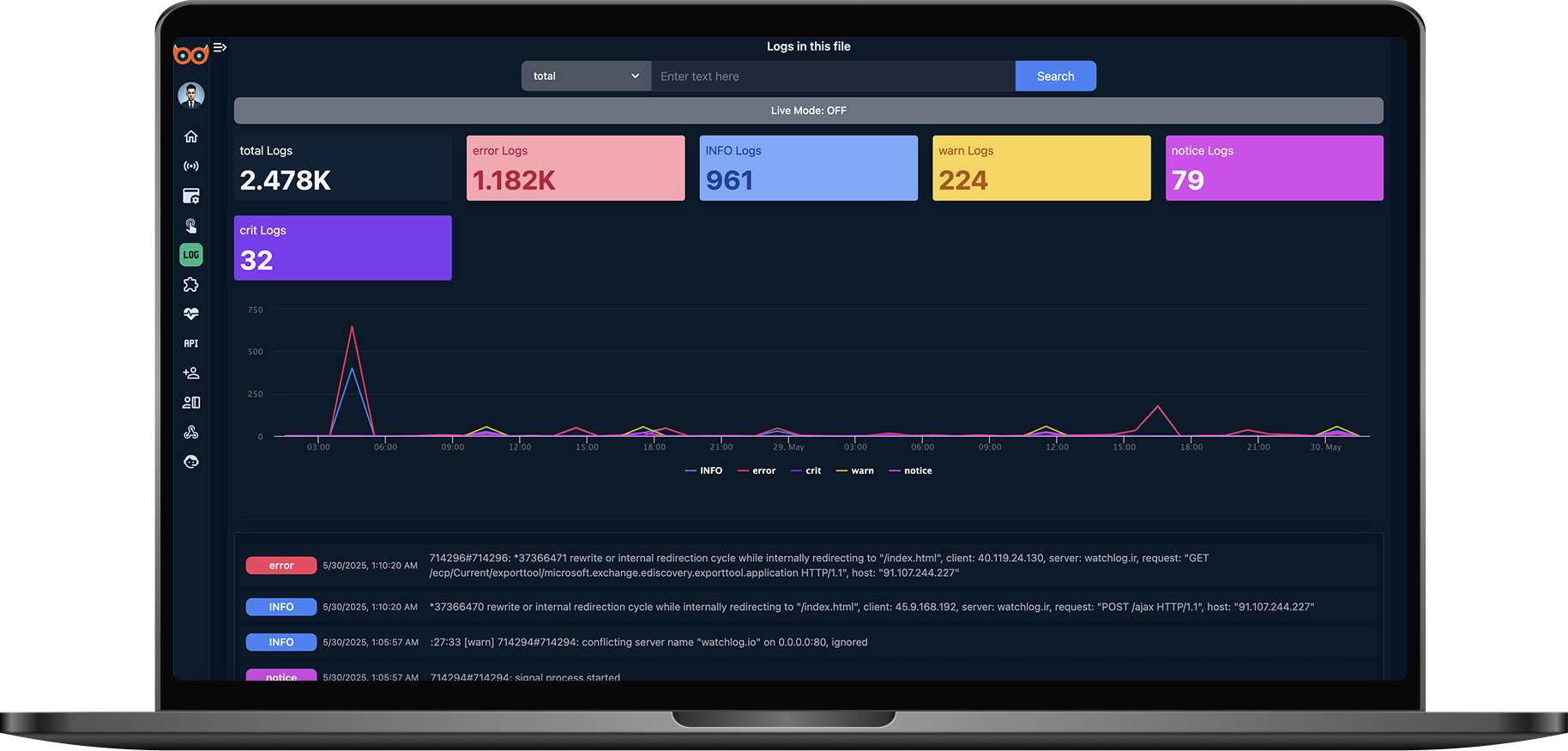Key Watchlist Features
Search Logs
Quickly find entries by keyword across all monitored logs in real time.
Filter by Levels & Time
Apply filters by log level or custom date ranges for focused analysis.
Live Mode
Enable real-time updates to watch incoming log entries without refreshing.
Interactive Charts
Visualize log volume and level distribution with dynamic charts.
Level Parsing
Automatically detect and categorize levels or define custom patterns.

Start Monitoring in Seconds
Add your endpoint, configure your check interval, and see your API health instantly.
View Setup Instructions